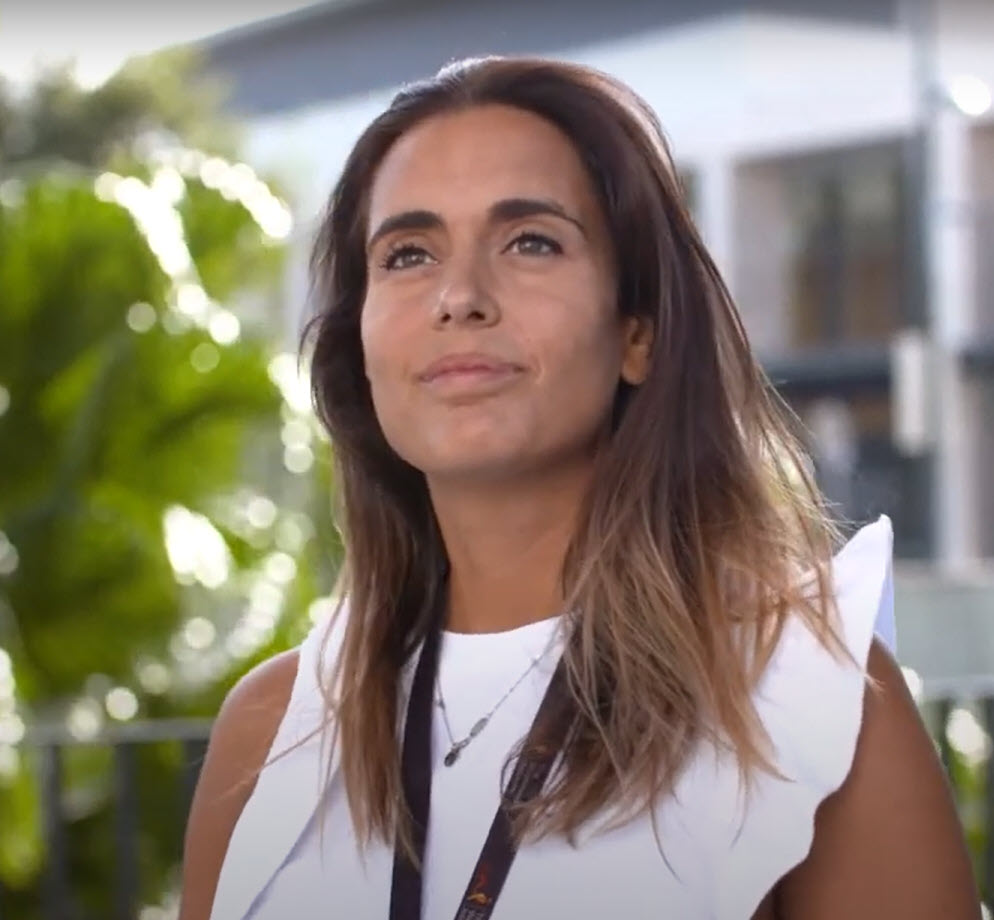Early and Mid-Career Researchers
Helping early and mid-career researchers

An important aspect of the society’s work is support for early and mid-career researchers (EMCRs) through peer exchange, mentoring programs, and promotion of clinical trials.
Our EMCR sub-committee is dedicated to facilitating collaboration and opportunities for the next generation of mood disorder research leaders who’ve been in the field for less than 10 years. It gives them a strong and influential voice within the ASBDD.
The resources available include:
- Networking and knowledge-building events
- Prizes and travel awards
- Support and advice from ASBDD members
- A platform to showcase research
How to get involved
We’re currently looking for EMCRs to join the ASBDD EMCR sub-committee. If you’re interested or would like to know more, email the committee chair at emcr@asbdd.org.au.
EMCR Committee Members

Dr Ana Rita Barreiros
EMCR Chair
Dr Ana Rita Barreiros is a post-doctoral Research Associate at the University of New South Wales, in Sydney. With a background in clinical psychology and neuroscience, she has specialised in treatment-resistant depression and interventional psychiatry. With a PhD in neuroimaging and extensive experience leading clinical trials, she integrates advanced neuroimaging methods with clinical expertise to better understand and improve psychiatric treatment outcomes.
Dr Barreiros has worked across leading research institutions in Portugal and Australia, contributing to several NHMRC, ARC and industry funded research projects and RCTs, to identify MRI and EEG markers in mood disorders and schizophrenia and to investigate neurostimulation, ketamine, and emerging psychedelic therapies.

Dr Ana Rita Barreiros
EMCR Chair
Dr Ana Rita Barreiros is a post-doctoral Research Associate at the University of New South Wales, in Sydney. With a background in clinical psychology and neuroscience, she has specialised in treatment-resistant depression and interventional psychiatry. With a PhD in neuroimaging and extensive experience leading clinical trials, she integrates advanced neuroimaging methods with clinical expertise to better understand and improve psychiatric treatment outcomes.
Dr Barreiros has worked across leading research institutions in Portugal and Australia, contributing to several NHMRC, ARC and industry funded research projects and RCTs, to identify MRI and EEG markers in mood disorders and schizophrenia and to investigate neurostimulation, ketamine, and emerging psychedelic therapies.

Dr Carl Moller
Secretary
Carl is a registered psychologist and Research Fellow in psychosis research at Deakin University’s Institute for Mental and Physical Health and Clinical Translation (IMPACT), School of Medicine. He holds a Master of Psychology in Clinical Neuropsychology and a Master of Public Health, and completed his PhD at the University of Melbourne’s Centre for Youth Mental Health, focusing on suicidality in young people with depressive disorders. His research interests span mood disorders, psychotic disorders, substance use, self-harm, suicide, and cognition in psychiatric conditions, along with a strong interest in addressing health inequities.

Dr Alec Jamieson
Committee member
Alec is a postdoctoral research fellow at the Melbourne Neuropsychiatry Centre, University of Melbourne. His research uses functional magnetic resonance imaging and computational modelling o improve our understanding of the altered social-affective processing present in mood and anxiety disorders. He has worked across several NHMRC-funded clinical trials examining neuroimaging predictors of treatment response in major depressive disorder.

Dr Emma Morton
Committee member
Dr Emma Morton is a Senior Lecturer at Monash University, School of Psychological Sciences and Turner Institute for Brain and Mental Health. She completed her PhD (Clinical Psychology) at Swinburne University, and then took up a position at the University of British Columbia (Canada), supported by a prestigious Canadian Institutes of Health Research Banting Postdoctoral Fellowship. Her research aims to optimize the quality of life of individuals living with mood disorders, with particular emphasis on bipolar disorders, psychological interventions, digital health tools, and psilocybin therapies, conducted within a community-based participatory research framework. Dr. Morton is recognised as an emerging leader in mood disorders research: she was awarded the Depression and Bipolar Support Alliance Gerald L. Klerman Young Investigator Award, and the International Society for Bipolar Disorders Samuel Gershon Junior Investigator Award.

Nga Yan (Connie) Tse
Committee member
I am a third-year PhD candidate at the University of Melbourne with formal training in clinical neuropsychology and transcranial magnetic stimulation (TMS). My research vision centres on the optimisation of brain stimulation therapeutics, particularly TMS, in which functional neuroimaging methods are used to refine treatment targeting. This has led me to focus my PhD on elucidating brain circuit alterations central to youth major depressive disorder, as well as the interplay between functional connectivity and clinical factors in shaping connectivity-guided TMS outcomes in adults with treatment-resistant depression.

Dr Matthew Tennant
Psychiatrist Representative
Matthew is a consultant psychiatrist providing inpatient and community mental health care at Te Whatu Ora, Canterbury. He is also a senior lecturer at the department of psychological medicine, University of Otago, Christchurch. Matthew has an interest in the treatment of mood disorders, recovery in chronic mental illness, medical education, and psychiatric ethics.
Become a member
ASBDD members enjoy exclusive access to our secure Membership Site, which contains a range of presentations from previous conferences and other events. Members also get discounted registration for conferences and presentations and up-to-date information on news and upcoming initiatives.